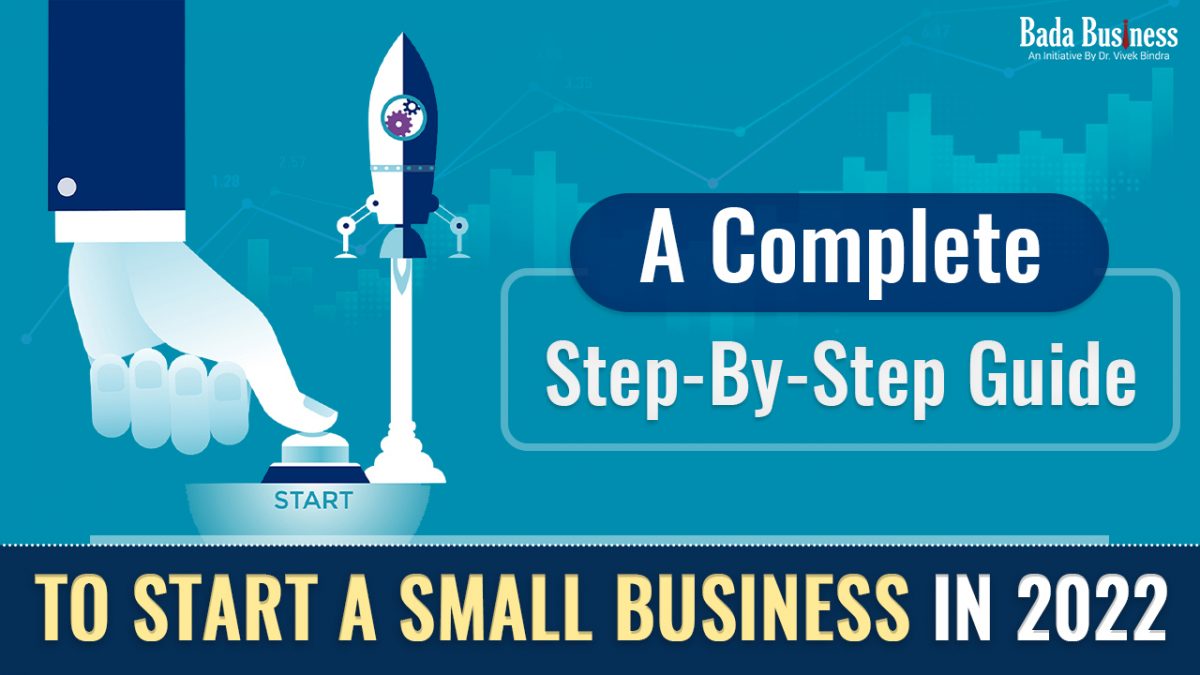Summary: Starting a business sounds exciting but do you have enough knowledge to build one from scratch?
Nothing excites me as much as the idea of becoming my boss. Apart from having multiple coffee breaks and the flexibility of working at my own pace, it motivates me to work hard and chase my dreams. Every decision that I make will bring me closer to my business goals. However, there is only one hurdle, how to start a small business? Should I take help from a business motivational speaker, or should I work along with a corporate trainer?
Most young entrepreneurs often have these questions while thinking about turning their ideas into a beautiful reality. Starting a business sounds exciting, but how and where to begin?
There are many different approaches. For instance, you can enroll in a business coaching program or get help from a mentor. But what are the exact SOPs that one should follow?
To know the answer, follow this step-by-step guide that will help you to understand the exact SOPs required to start your small business.
1. Refine Your Business idea
If you are thinking about starting your venture, you might already have an idea in your mind. Whether product-related or service-related, do a quick search about existing companies in your industry. Learn about your competitors and brand leaders and figure out which unique features or products they are offering their customers or where they are lacking. You can turn these gaps into opportunities.
Also, find out your USPs. This will help you to stand out. Define your ‘why.’ If you want to be an entrepreneur but do not want to start from scratch, you can also consider taking a franchise.
But what are the factors one should consider while taking a franchise? You can watch this incredibly informative video by Dr.Vivek Bindra here:
2. Know Your Competitors Well
Most entrepreneurs spend more time creating their products (which is good) than they often do to know their competitors well. If you will go to investors, the first thing that they would like to know is what sets you apart from your competition.
Knowing your competitors is as important as knowing your target audience. You can conduct a SWOT analysis for your competitors. It will give you more clarity on what is working in the market. You can also take help from a motivational speaker.
3. Create Your Business Plan
A business map is like a road map that will help you visualize your journey and spot potential problems. This document makes it simple for financial institutions, potential investors, and company management to understand your business. Your business map should include an executive summary, market analysis, organizational structure, products & services, mission & goals, company’s background, financial and marketing plan. You can also work with a business motivational speaker to develop your business plan.
4. Assess Your Finances
Finance is a significant factor that one should consider before starting a small business. Do you have the means to start your small business, or would you take a loan? If you are planning to leave your job to focus on your startup venture, do you think you have enough money to support yourself until you make a profit? Only 5% of startups survive after five years. Most startups fail because of lack of funds. Hence, it is essential to perform a break-even analysis.
Once you have figured it out, it is time to consider your funding options. There are multiple options, from business loans to government schemes, crowd-funding to fundraising through investors and business grants.
5. Determine Your Legal Business Structure
Before registering your company, you need to decide what kind of entity your business is. A business structure legally affects everything from how you file your taxes to your liability if something unfortunate happens. There are four types of business structure:
i). Sole Proprietorship
ii). Partnership
iii). Corporation
iv). Limited Liability Company
6. Register Your Business
Once you have decided about your business structure and name, it is time to register your brand. If you’re doing business under a name different than your own, you’ll need to register with the federal government and maybe your state government as well.
7. Apply for Licenses & permits
By staying legally compliant, you can keep your business running smoothly. The licenses and permits you need for your business will vary depending on your industry, sector, state, location, and other factors.
8. Open a Business Account
Set up one business account to handle legal, tax, and day-to-day issues. Keep all the required registration and paperwork ready.
Starting a business requires lots of planning, finance, and completion of a series of legal activities.
Hence, if you want to start a business, you can take help from a business motivational speaker.
The idea of managing a business is more straightforward said than done, and we agree with you. This is why to help you move forward with your business goals, we at Bada Business offer an exclusive Business Coaching Program with foundation courses, specialized courses, and value-added courses.
